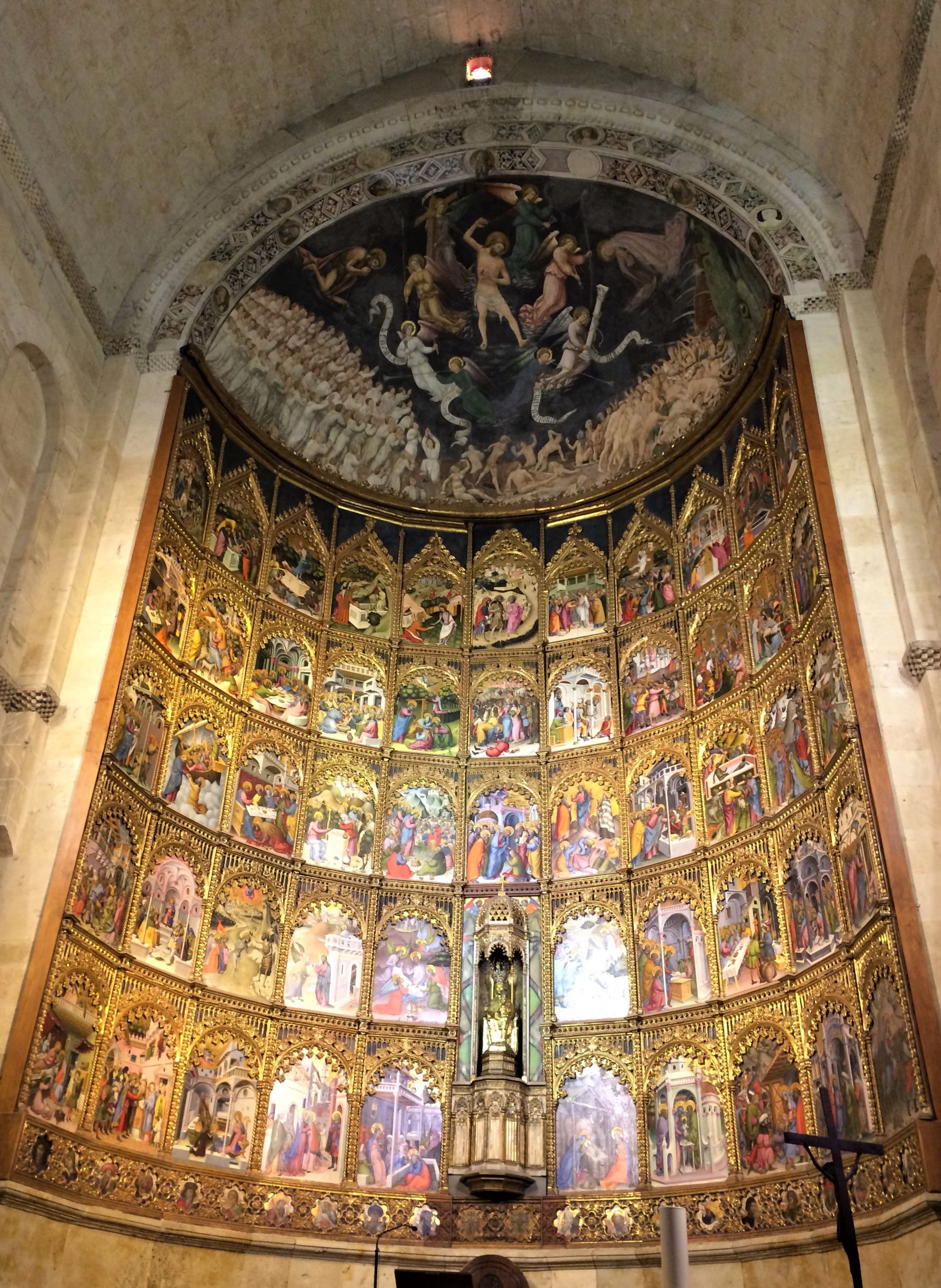Iberdrola is to illuminate the altarpiece of the Old Cathedral of Salamanca
Iberdrola is to illuminate the altarpiece of the Old Cathedral of Salamanca
- The Dean/Chairman of the Cathedral Council, Florentino Gutiérrez, and the Director of the Fundación Iberdrola España, Ramón Castresana, have this morning signed an agreement to proceed with this initiative.
- This act, under the auspices of the Fundación Iberdrola España’s Illumination Programme will safeguard its conservation and endow the altarpiece with modern and efficient lighting.
Salamanca. The Dean/Chairman of the Salamanca Cathedral Council, Florentino Gutiérrez, and the Director of the Fundación Iberdrola España, Ramón Castresana, have this morning signed an agreement to renew the lighting of the great altarpiece of the Old Cathedral of Salamanca.
For the illumination of the altarpiece, a thorough study was carried out of angles, power and optics to correct the obsolete and poor lighting that exaggerated shine and reflections.
The aim of the project, part of the Fundación Iberdrola España’s Illumination Programme, is to provide the whole area with up-to date and efficient lighting that avoids glare and fully safeguards its conservation. In addition, the operation intends to achieve a colour reproduction that does not alter the paintings.
The great altarpiece and the Old Cathedral
Salamanca’s Old Cathedral, in Romanesque and Gothic style, was built around the 12th and 14th century on the initiative of the first bishop of the city, Jerónimo de Perigord. The building was constructed around 5 chapels, a cloister and its chapterhouses. When the New Cathedral was planned, the possibility was discussed of knocking down the old one, but finally this idea was abandoned and currently the Salamancan capital boasts two cathedrals.
The great altarpiece, produced between 1430 and 1450, adorns the semicircular apse of the building which is rounded off with a half-dome. It is structured around a narrow platform above which are 1eleven sections and five rows depicting scenes from the life of the Virgin Mary and Jesus Christ, the work of three artists, most notably the Italian Dello Delli. The use of bright colours, typical of Flemish art, is testament to the influence of the Italian and Sienese schools.
In addition, the altarpiece is presided over by a sculpture of the patron saint of the city, the Virgen de la Vega, which came from the former monastery of Santa María de la Vega. The statue, in Byzantine style, is showing the Baby Jesus to the faithful and is covered in gilt bronze encrusted with enamel and precious stones, a task undertaken by Salamancan workshops.
Iberdrola’s strong commitment to Salamanca and Castilla y León
The new lighting for the great altarpiece is the crowning glory of a series of projects carried out in the Salamancan capital as part of the Fundación Iberdrola España’s Illumination Programme. In April the company inaugurated the ornamental lighting for the interior of the New Cathedral which highlighted the most important elements of this place of worship.
Iberdrola used the most highly-advanced LED technology to draw attention to the vaulted ceilings in the lateral and central naves, the transept and the lantern tower and also to highlight specific items in the main chapel and altar, using 6.9 kilowatts (kW) of total installed power.
To achieve this it installed a total of 144 spotlights and almost 1,400 metres of cabling in the galleries of the triforia of the cathedral, which, thanks to meticulous installation, remain unseen to the eyes of visitors.
Likewise, in May Iberdrola inaugurated the illumination of the interior of the Chapel of the Colegio Mayor del Arzobispo Fonseca, declared a Site of Cultural Interest. This operation succeeded in limiting light pollution by obtaining uniform illumination that highlighted the altarpiece, the dome and the transept.
The illumination of the altarpiece of Salamanca’s Old Cathedral is another example of Iberdrola’s commitment to Castilla y León and its enduring mission to promote the social value of the culture, origins and conservation of the region’s historical-artistic heritage.

